SALSETH
Project ID: 873370 MSCA-RISE-2019 - Marie Skłodowska-Curie Research and Innovation Staff Exchange (RISE)
Project details
Total cost:
EUR 851 000EU contribution:
EUR 851 000Coordinated in:
SerbiaTopic(s):
MSCA-RISE-2019 - Marie Skłodowska-Curie Research and Innovation Staff Exchange (RISE)Call for proposal:
H2020-MSCA-RISE-2019Funding scheme:
MSCA-RISE - Marie Skłodowska-Curie Research and Innovation Staff Exchange (RISE)Programme:
H2020-EU.1.3.3. - Stimulating innovation by means of cross-fertilisation of knowledgeObjective
Oral hygiene is the cornerstone of good oral health and World Health Organization recognizes oral health as an integral part of systemic health. Among the non-invasive organic fluids, saliva is one of the most preferable and practical specimens for oral and systemic health monitoring as it is readily available and easily collected and stored. Saliva is frequently called a “mirror of the body” since it can reflect both the physiological and pathological conditions in the entire human organism.
The SALSETH project facilitates exchange of knowledge, skills, competencies and capabilities (through secondments) of 8 internationally top-ranking participating organizations (4 from academic sector and 4 SMEs) from Germany, Italy, Spain, Poland, Serbia, Ukraine, Malaysia and Australia. This project proposal promotes international and intersectoral collaboration between participating institutions, bringing experts from different fields of science in a unique R&I set up.
The SALSETH brings together expertise of the respectable institutions to reach beyond the-state-of-the-art advances in: (1) natural and bio-inspired biocompatible materials; (2) edible food-based sensors which can promptly detect important biomarkers from saliva; (3) external smart electronic device for wireless reading data from sensors; and (4) microfluidic devices for optimal administration of drugs or essential oils as a main part of the intraoral appliances for better oral and systemic health. Through carefully designed secondments, the seconded staff will work on significant technological breakthrough in salivary theranostics for personalized dental bio-medicine. This interdisciplinary project offers an excellent research oriented environment for the personal and professional growth of the involved staff members. The SALSETH will open possibilities of salivary diagnostics for personalized individual medicine applications including clinical treatment options and outcome evaluation predictions.
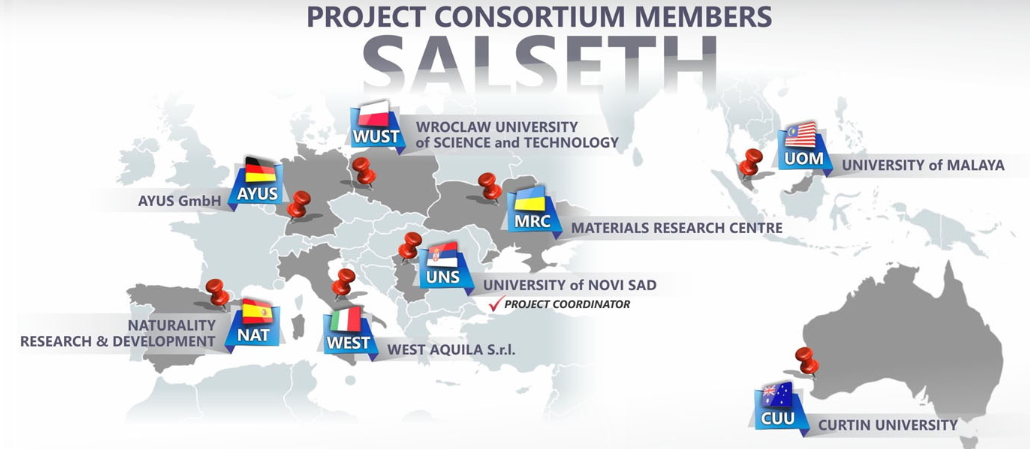
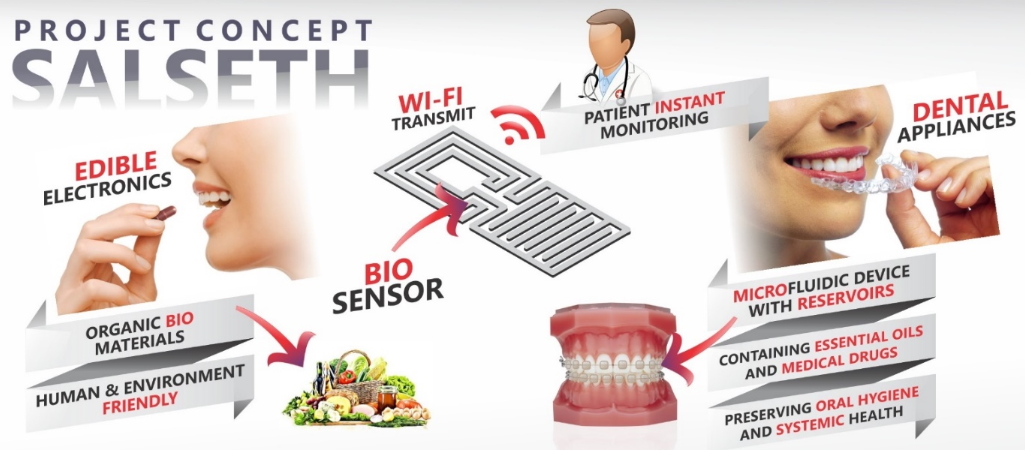
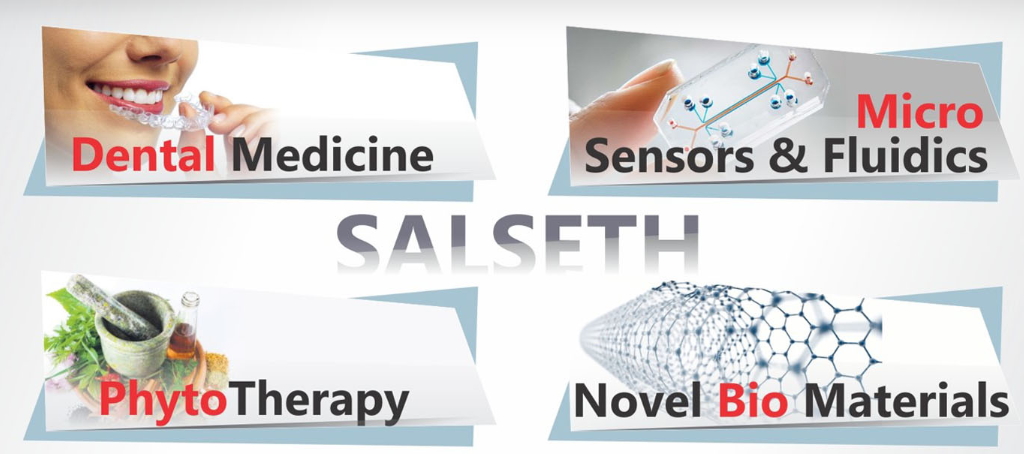
Coordinator
UNIVERZITET U NOVOM SADU
Novi Sad, Serbia
Participants:
POLITECHNIKA WROCLAWSKA
Wroclaw, Poland
MATERIALS RESEARCH CENTER
Kyiv, Ukraine
WEST AQUILA SRL
L`Aquilla, Italy
Naturality Research & Development
Barcelona, Spain
AYUS GMBH
Buhi, Germany
Partners (2):
UNIVERSITY OF MALAYA
Kuala Lumpur, Malaysia
CURTIN UNIVERSITY OF TECHNOLOGY
Perth, Australia
H2020 MSCA RISE SALSETH project participant from MRC V. Balitskiy started secondment at University of Novi Sad, Serbia
|
|
|


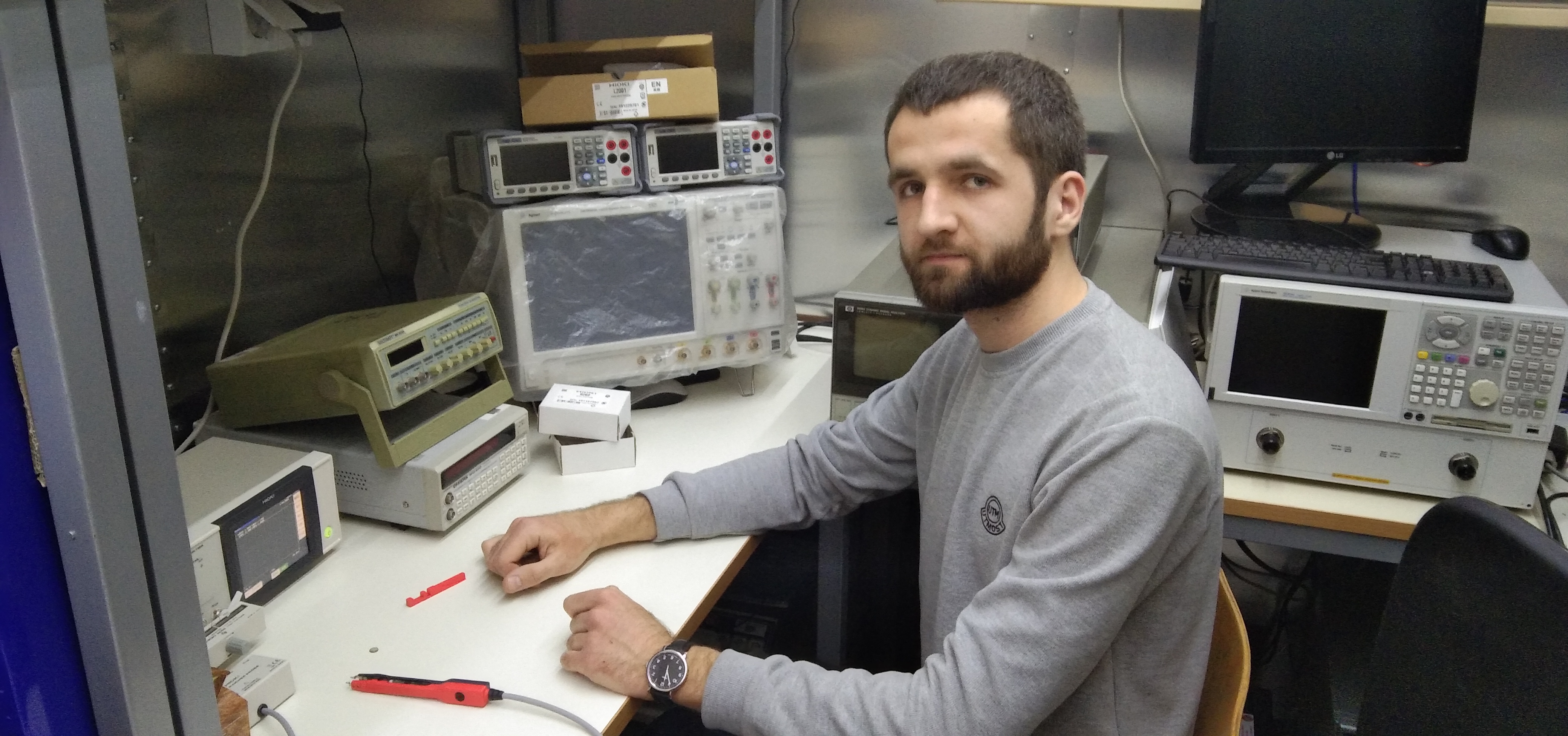 SALSETH project participant from MRC Vitalii Balitskiy was hosted by partners from University of Novi Sad (UNS), Serbia, during his secondment visit according to the project plan.
SALSETH project participant from MRC Vitalii Balitskiy was hosted by partners from University of Novi Sad (UNS), Serbia, during his secondment visit according to the project plan.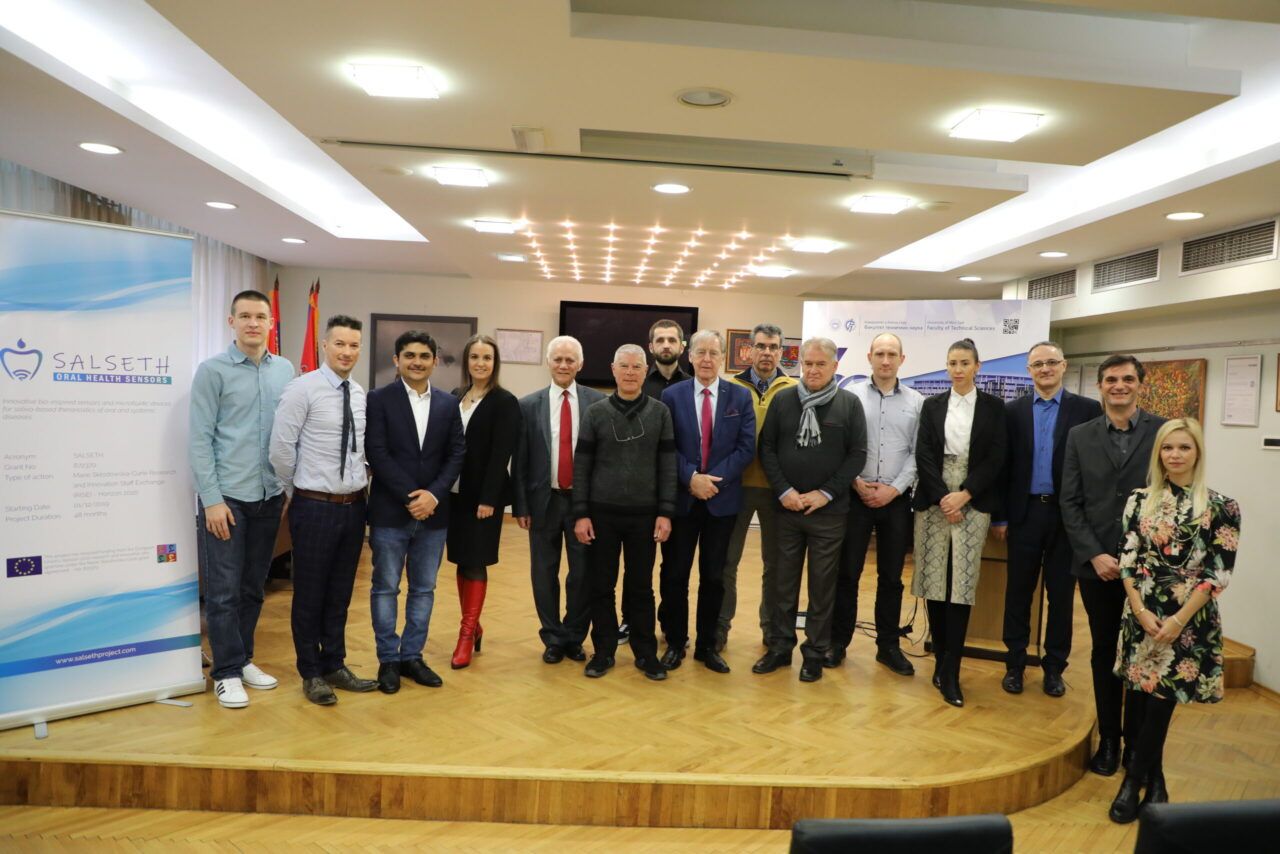 Research team from Materials Research Centre (MRC), Kyiv, Ukraine, was represented by Vitalii Balitskiy, who made a presentation to project partners about the MRC company, its capabilities, current research projects and main activities.
Research team from Materials Research Centre (MRC), Kyiv, Ukraine, was represented by Vitalii Balitskiy, who made a presentation to project partners about the MRC company, its capabilities, current research projects and main activities.
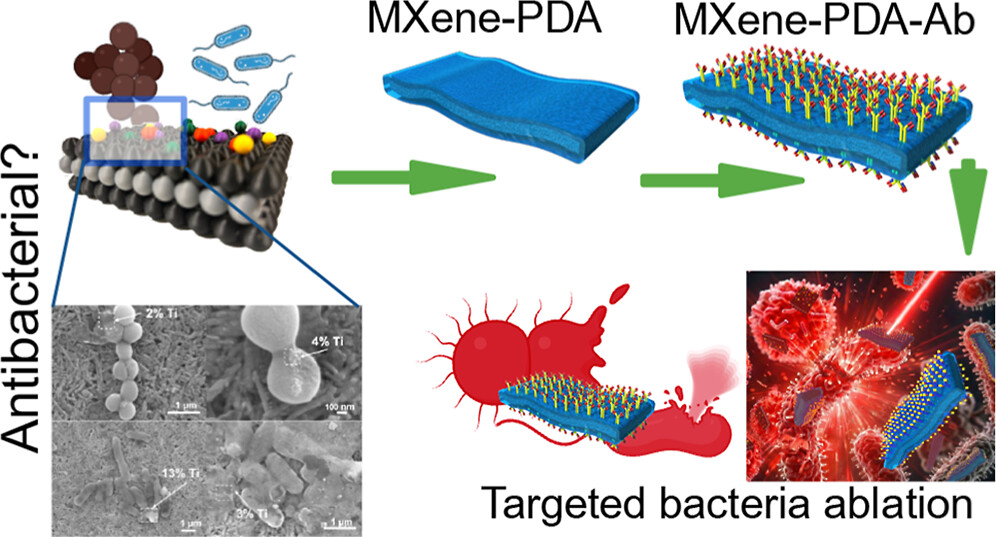 Do MXene nanosheets possess intrinsic antibacterial activity? A systematic study of high-quality Ti-, V-, and Nb-based MXenes reveals negligible inherent antimicrobial effects while highlighting their strong potential for targeted photothermal antibacterial therapy.
Do MXene nanosheets possess intrinsic antibacterial activity? A systematic study of high-quality Ti-, V-, and Nb-based MXenes reveals negligible inherent antimicrobial effects while highlighting their strong potential for targeted photothermal antibacterial therapy. Highlights
Highlights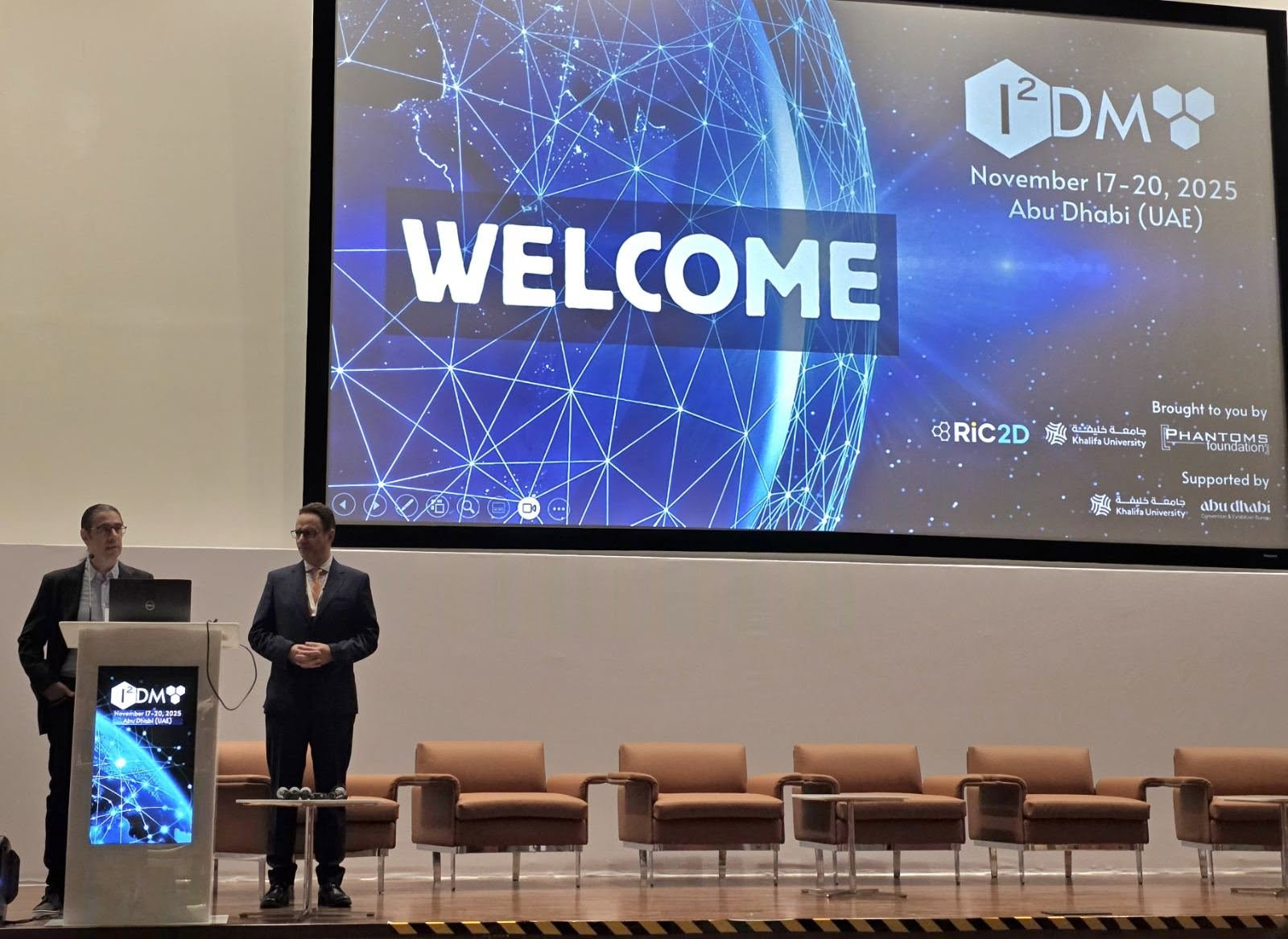 We are excited to share that our Carbon-Ukraine (Y-Carbon LLC) company participated in the I2DM Summit and Expo 2025 at Khalifa University in Abu-Dhabi! Huge thanks to Research & Innovation Center for Graphene and 2D Materials (RIC2D) for hosting such a high-level event.It was an incredible opportunity to meet brilliant researchers and innovators working on the next generation of 2D materials. The insights and energy from the summit will definitely drive new ideas in our own development.
We are excited to share that our Carbon-Ukraine (Y-Carbon LLC) company participated in the I2DM Summit and Expo 2025 at Khalifa University in Abu-Dhabi! Huge thanks to Research & Innovation Center for Graphene and 2D Materials (RIC2D) for hosting such a high-level event.It was an incredible opportunity to meet brilliant researchers and innovators working on the next generation of 2D materials. The insights and energy from the summit will definitely drive new ideas in our own development. Carbon-Ukraine team had the unique opportunity to visit XPANCEO - a Dubai-based deep tech startup company that is developing the first smart contact lenses with AR vision and health monitoring features, working on truly cutting-edge developments.
Carbon-Ukraine team had the unique opportunity to visit XPANCEO - a Dubai-based deep tech startup company that is developing the first smart contact lenses with AR vision and health monitoring features, working on truly cutting-edge developments. Our Carbon-Ukraine team (Y-Carbon LLC) are thrilled to start a new RIC2D project MX-Innovation in collaboration with Drexel University Yury Gogotsi and Khalifa University! Amazing lab tours to project collaborators from Khalifa University, great discussions, strong networking, and a wonderful platform for future collaboration.
Our Carbon-Ukraine team (Y-Carbon LLC) are thrilled to start a new RIC2D project MX-Innovation in collaboration with Drexel University Yury Gogotsi and Khalifa University! Amazing lab tours to project collaborators from Khalifa University, great discussions, strong networking, and a wonderful platform for future collaboration.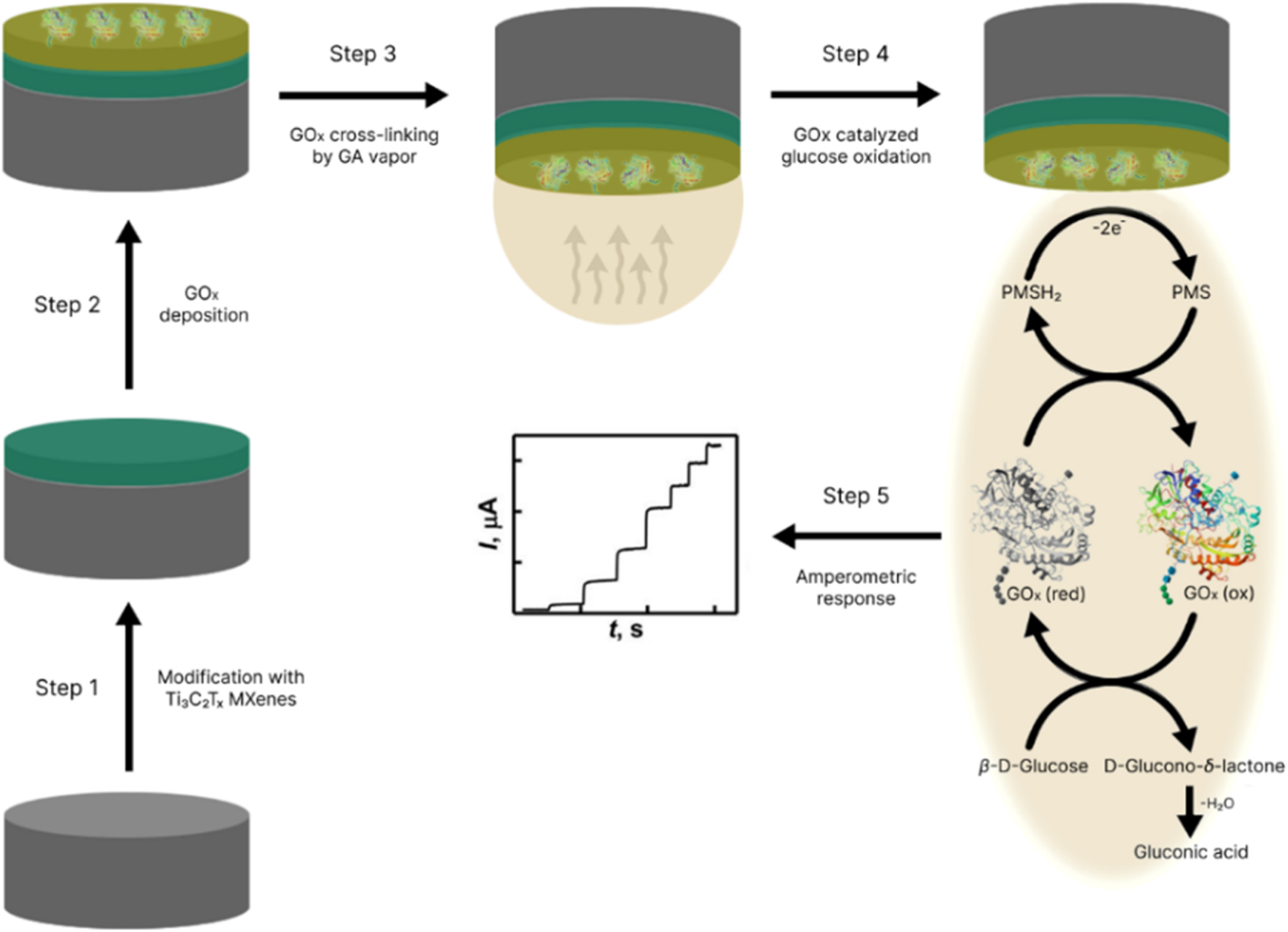
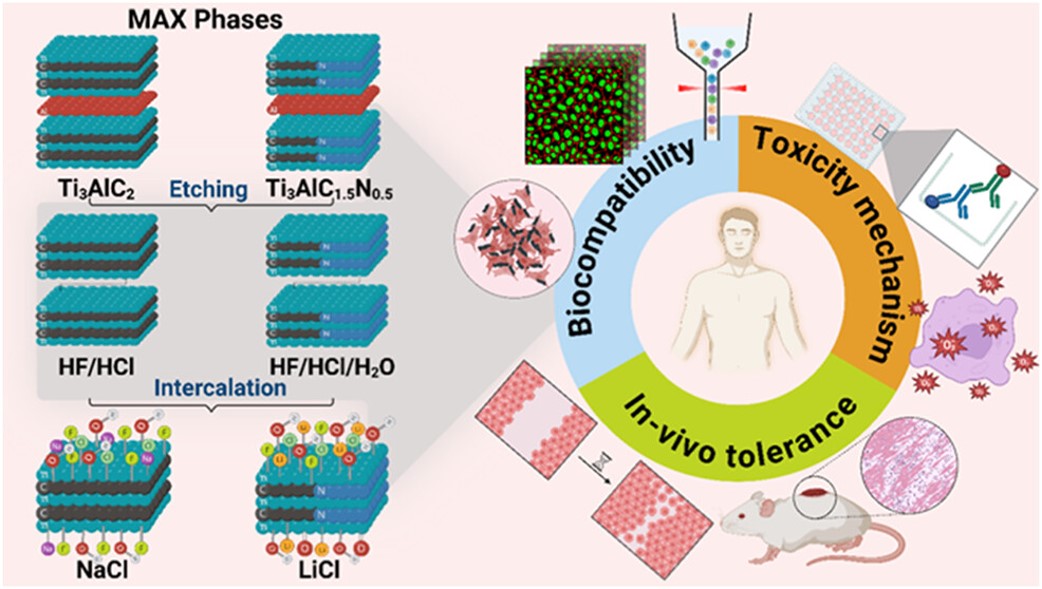 MXenes potential applications include sensors, wound healing materials, and drug delivery systems. A recent study explored how different synthesis methods affect the safety and performance of MXenes. By comparing etching conditions and intercalation strategies, researchers discovered that fine-tuning the surface chemistry of MXenes plays a crucial role in improving biocompatibility. These results provide practical guidelines for developing safer MXenes and bring the field one step closer to real biomedical applications.
MXenes potential applications include sensors, wound healing materials, and drug delivery systems. A recent study explored how different synthesis methods affect the safety and performance of MXenes. By comparing etching conditions and intercalation strategies, researchers discovered that fine-tuning the surface chemistry of MXenes plays a crucial role in improving biocompatibility. These results provide practical guidelines for developing safer MXenes and bring the field one step closer to real biomedical applications. An excellent review highlighting how MXene-based sensors can help tackle one of today’s pressing environmental challenges — heavy metal contamination. Excited to see such impactful work moving the field of environmental monitoring and sensor technology forward!
An excellent review highlighting how MXene-based sensors can help tackle one of today’s pressing environmental challenges — heavy metal contamination. Excited to see such impactful work moving the field of environmental monitoring and sensor technology forward!
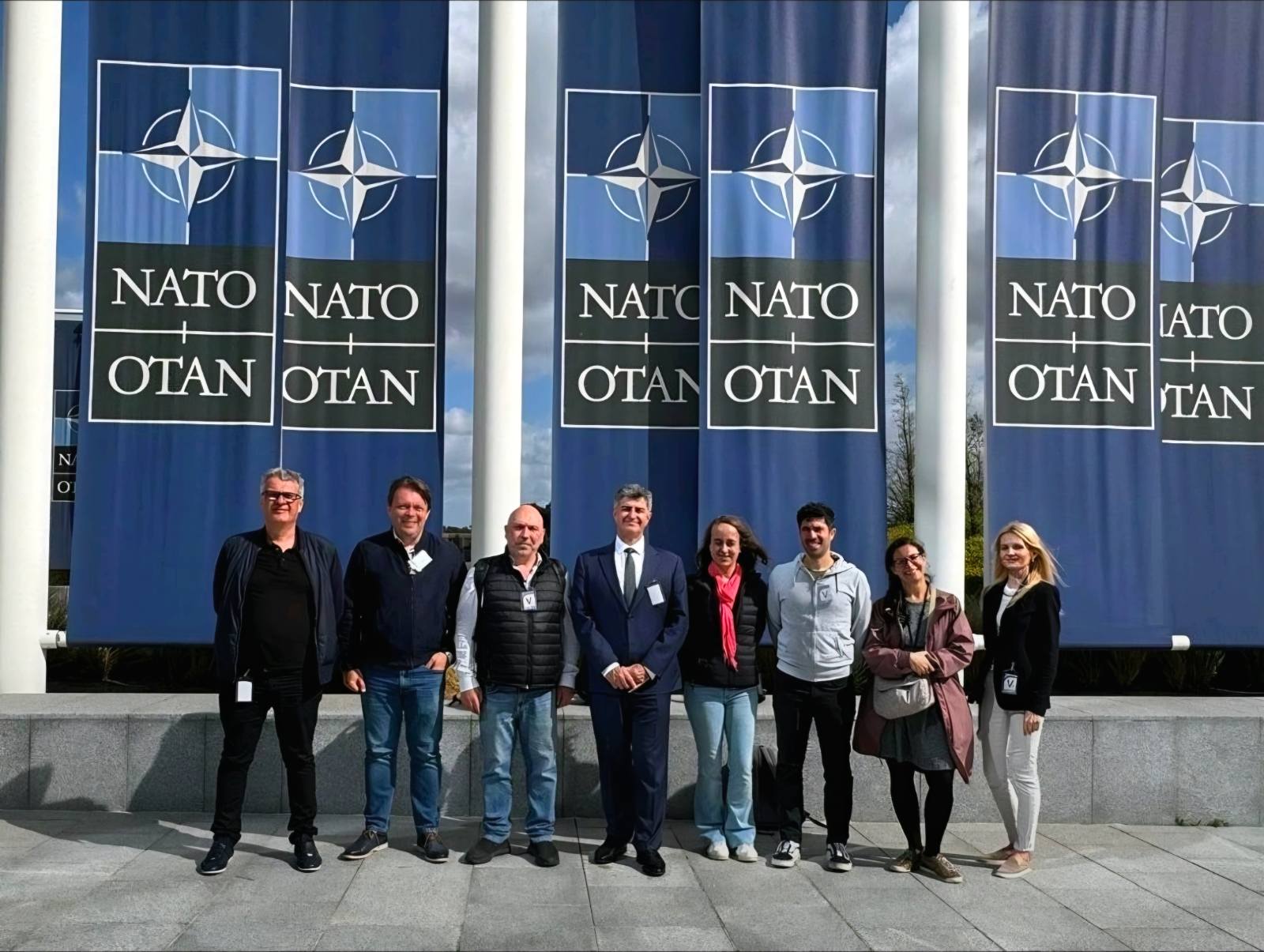 Carbon-Ukraine team was truly delighted to take part in the kickoff meeting of the ATHENA Project (Advanced Digital Engineering Methods to Design MXene-based Nanocomposites for Electro-Magnetic Interference Shielding in Space), supported by NATO through the Science for Peace and Security Programme.
Carbon-Ukraine team was truly delighted to take part in the kickoff meeting of the ATHENA Project (Advanced Digital Engineering Methods to Design MXene-based Nanocomposites for Electro-Magnetic Interference Shielding in Space), supported by NATO through the Science for Peace and Security Programme.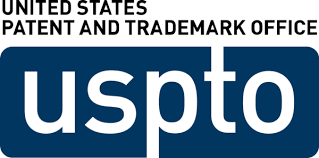 Exellent news, our joint patent application with Drexel University on highly porous MAX phase precursor for MXene synthesis published. Congratulations and thanks to all team involved!
Exellent news, our joint patent application with Drexel University on highly porous MAX phase precursor for MXene synthesis published. Congratulations and thanks to all team involved!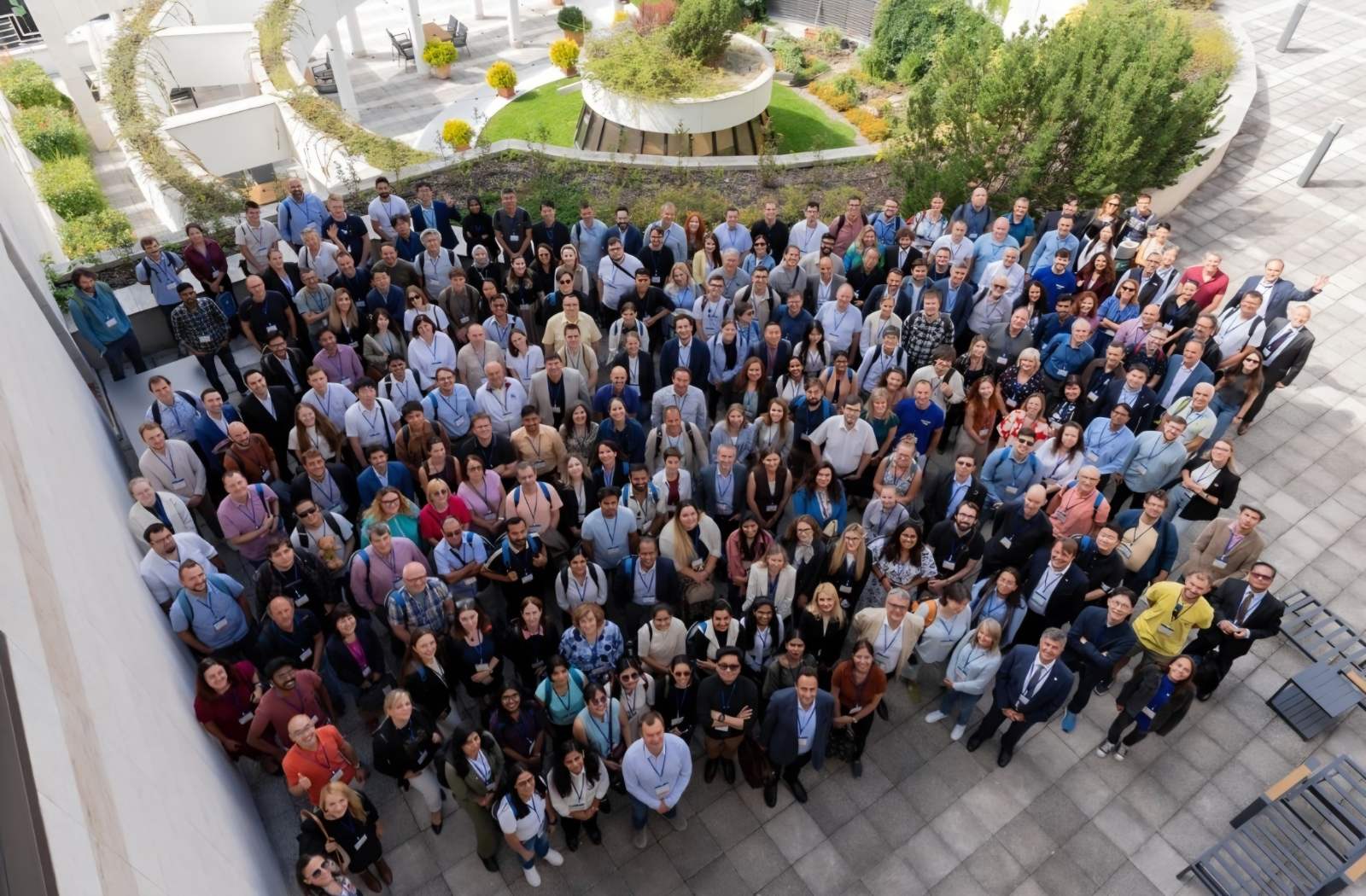 Our team was very delighted to take part in International Symposium "The MXene Frontier: Transformative Nanomaterials Shaping the Future" – the largest MXene event in Europe this year!
Our team was very delighted to take part in International Symposium "The MXene Frontier: Transformative Nanomaterials Shaping the Future" – the largest MXene event in Europe this year!  Last Call! Have you submitted your abstract for IEEE NAP-2025 yet? Join us at the International Symposium on "The MXene Frontier: Transformative Nanomaterials Shaping the Future" – the largest MXene-focused conference in Europe this year! Final Submission Deadline: May 15, 2025. Don’t miss this exclusive opportunity to showcase your research and engage with world leaders in the MXene field!
Last Call! Have you submitted your abstract for IEEE NAP-2025 yet? Join us at the International Symposium on "The MXene Frontier: Transformative Nanomaterials Shaping the Future" – the largest MXene-focused conference in Europe this year! Final Submission Deadline: May 15, 2025. Don’t miss this exclusive opportunity to showcase your research and engage with world leaders in the MXene field!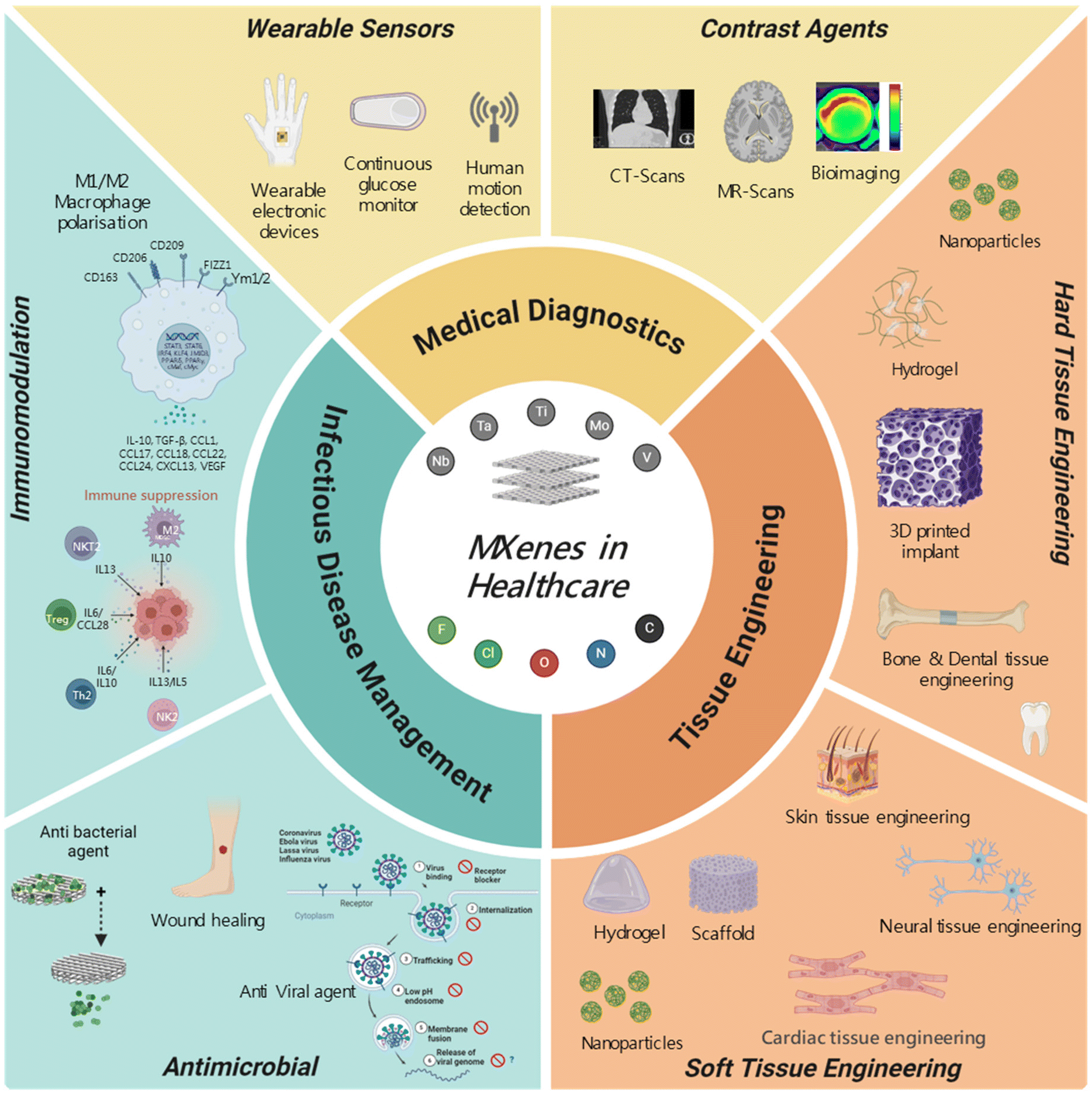 We are excited to announce the publication of latest review article on MXenes in Healthcare. This comprehensive review explores the groundbreaking role of MXenes—an emerging class of 2D materials—in revolutionizing the fields of medical diagnostics and therapeutics. Read the full article here: https://doi.org/10.1039/D4NR04853A.
We are excited to announce the publication of latest review article on MXenes in Healthcare. This comprehensive review explores the groundbreaking role of MXenes—an emerging class of 2D materials—in revolutionizing the fields of medical diagnostics and therapeutics. Read the full article here: https://doi.org/10.1039/D4NR04853A.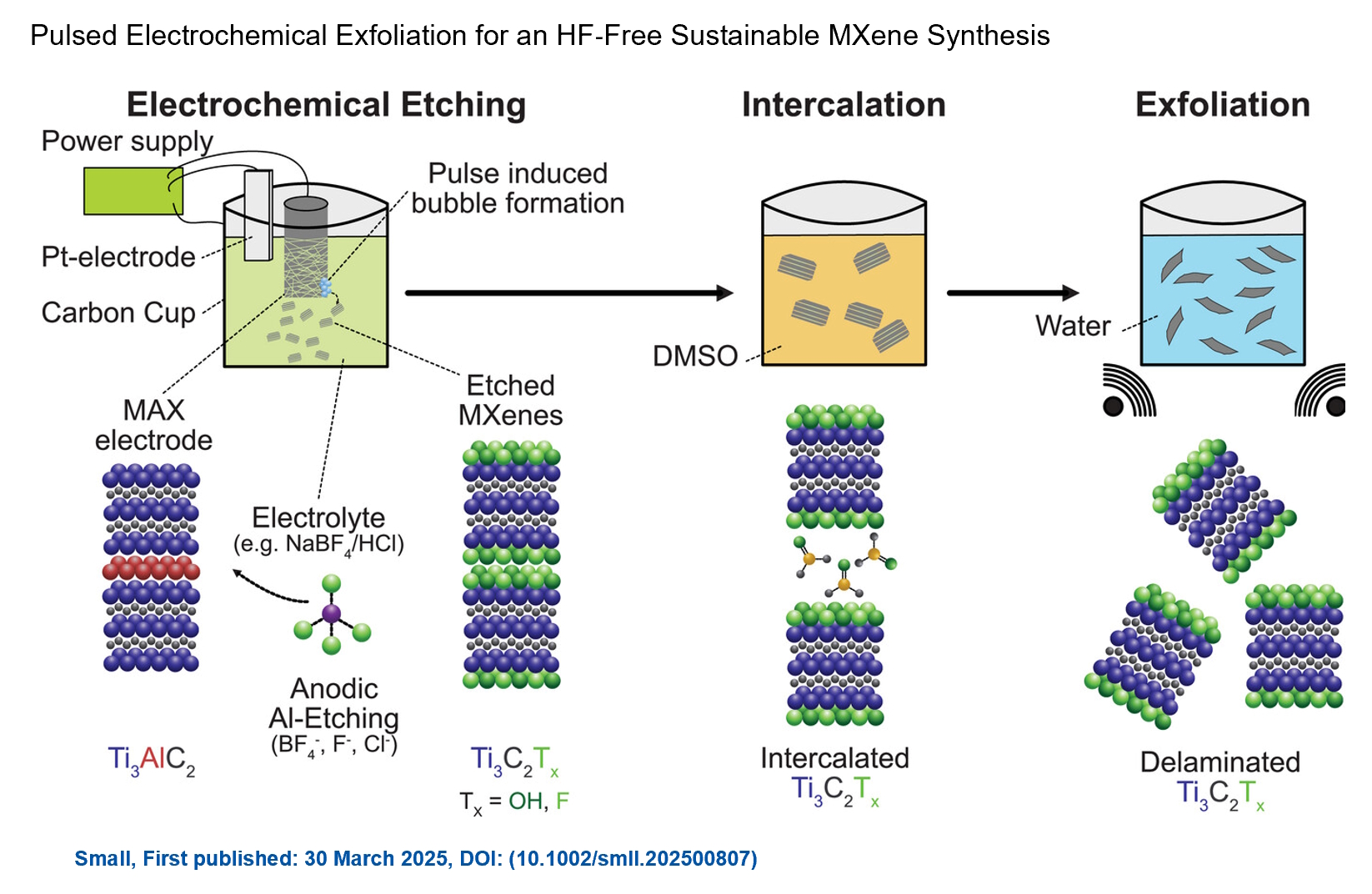 Congratulations and thank you to our collaborators from TU Wien and CEST for very interesting work and making it published! In this work, an upscalable electrochemical MXene synthesis is presented. Yields of up to 60% electrochemical MXene (EC-MXene) with no byproducts from a single exfoliation cycle are achieved.
Congratulations and thank you to our collaborators from TU Wien and CEST for very interesting work and making it published! In this work, an upscalable electrochemical MXene synthesis is presented. Yields of up to 60% electrochemical MXene (EC-MXene) with no byproducts from a single exfoliation cycle are achieved.